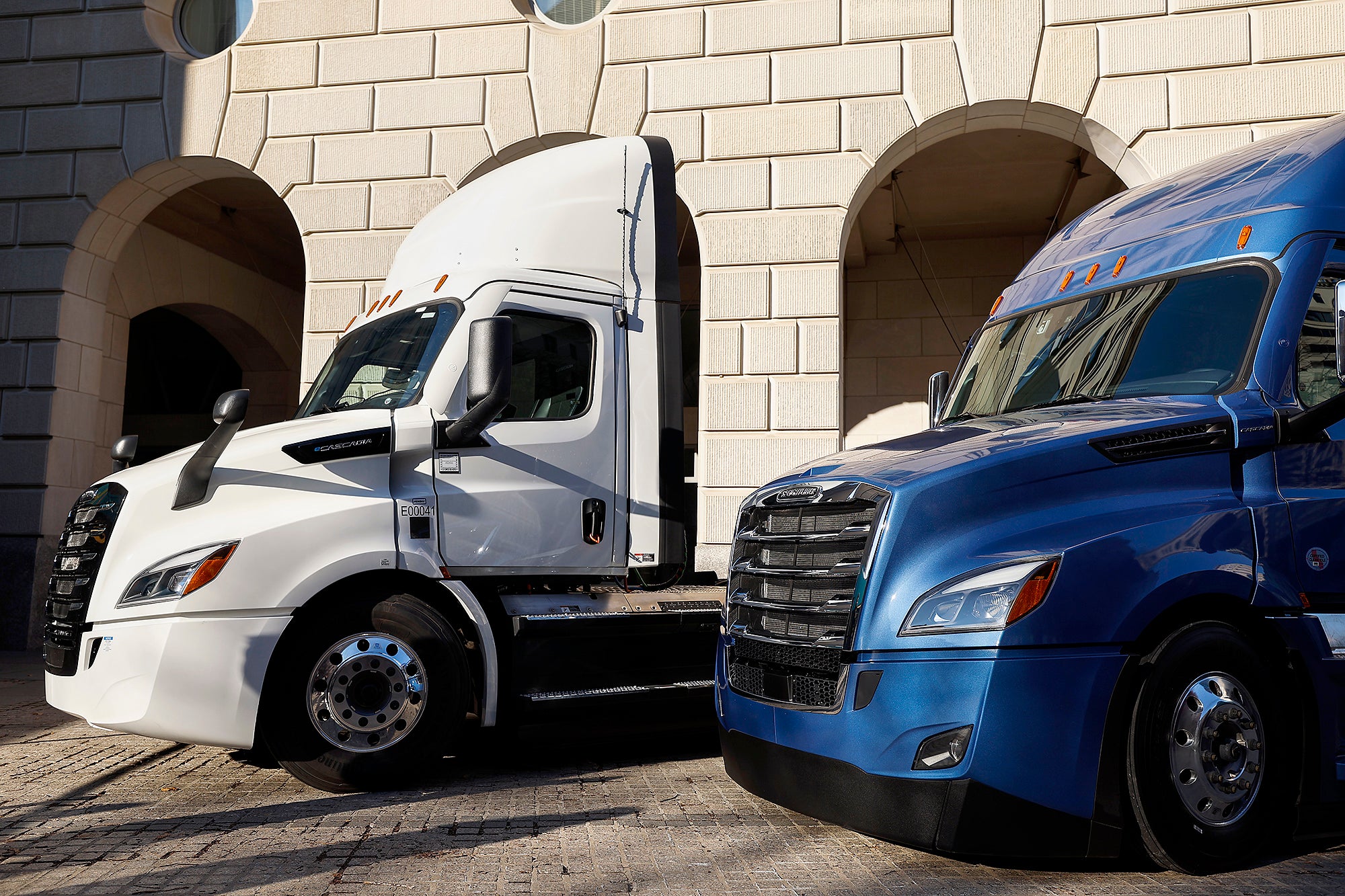Colorado’s Historic Opportunity To Clean Up Toxic Truck Pollution
An environmental justice coalition in Colorado is fighting for the strongest possible clean trucks package
Toxic diesel pollution from trucks does not impact communities equally. Disproportionately, this pollution harms low-income communities and communities of color in Colorado and across the country. Diesel pollution leads to higher rates of cancer, heart disease, respiratory disorders, and even premature death. In the coming weeks, Colorado has a historic opportunity to help address this pollution by adopting clean truck policies that both ramp up the production and sale of zero emissions vehicles and protect Coloradans from harmful nitrogen oxides (NOx) with low pollution standards for truck manufacturers.
Colorado has an air quality problem. Last year, the Environmental Protection Agency declared Denver and the northern Front Range as severe violators of federal air quality standards. The North Denver area is one of the most polluted zip codes in the country, with residents facing multiple threats from industrial facilities like the Suncor refinery, Superfund sites, rail traffic, and multiple highways. Trucks coming and going daily from factories located right by residential neighborhoods are a significant source of toxic pollution that impacts the predominantly Latino community in the region.
It is time for Colorado to show leadership on this issue as the first state in the region to adopt a strong clean trucks rule package. This April, Colorado’s Air Quality Control Commission will have a hearing on whether to adopt the rules. Earthjustice represents an environmental justice coalition that includes GreenLatinos, Mi Familia Vota, NAACP-Denver, and Womxn From the Mountain. Earthjustice and its partners are united in fighting for the strongest possible clean trucks package. The coalition is also urging the commission to support a proposal for additional data collection regarding existing trucks, so that we can work toward improved electrification strategies.
A strong clean trucks rule package would cut smog and soot-forming emissions by 90% by 2050 compared to today, reducing respiratory disease, hospital admissions, and premature deaths — benefits worth more than $3 billion. These health benefits are especially important for the low-income communities and communities of color who have faced the worst impacts from Colorado’s highways and industrial facilities, as they will help residents avoid missed days at school and work, hospital admissions, emergency room visits, and premature death. This is an important opportunity to address Colorado’s history of environmental racism.
Urgent action on clean trucks is also necessary to help tackle our worsening climate crisis. Colorado has a mandate to reduce greenhouse gas emissions 26% by 2025, 50% by 2030, and 90% by 2050. The state is not currently on track to achieve these required reductions. Vehicles are the largest share of greenhouse gas emissions in our state, and emissions from this sector are rising. By taking bold action to advance clean trucks, Colorado can take a significant step toward the reductions it is required to achieve.
Not only will clean trucks protect our climate and clean up our air quality, but they will also save us money and create new jobs. There are significant economic benefits from this clean trucks package. Electric trucks cost less money to maintain than diesel trucks. In fact, savings could add up to more than $6 billion through 2050. That will mean reduced shipping costs for commercial goods and a stronger economy that benefits everyone in our state. A clean trucks rule package will also send a strong market signal, stimulate investments, and support high-quality clean technology jobs as we increase the availability of zero-emission trucks across the state.
Colorado has repeatedly failed its residents on both air quality and living up to its climate commitments. Disproportionately, this burden falls on low-income communities and communities of color across the state, particularly those who live near highways or industrial facilities with increased toxic truck pollution. By taking action to adopt these new clean truck policies, Colorado can show that it means business on moving toward a clean energy economy. We can no longer kick the can down the road — the time for clean trucks and healthier air quality is now.
Earthjustice’s Rocky Mountain office protects the region’s iconic public lands, wildlife species, and precious water resources; defends Tribes and disparately impacted communities fighting to live in a healthy environment; and works to accelerate the region’s transition to 100% clean energy.
Zoe Woodcraft
Public Affairs and Communications Officer, Earthjustice
zwoodcraft@earthjustice.org
